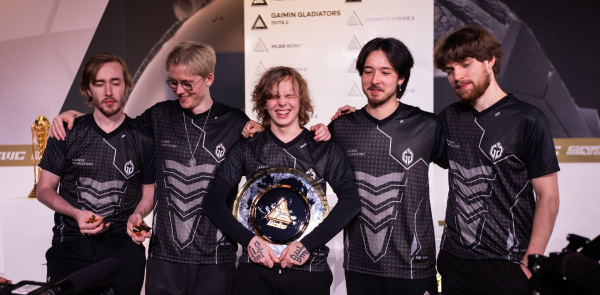In the high-stakes world of competitive esports, where pixel-perfect plays determine fortunes, it appears that off-screen conduct can carry an even heavier price tag. Gaimin Gladiators, a prominent organization in the Dota 2 scene, has recently unveiled a saga that transcends mere gameplay, culminating in a lawsuit against its former roster. The core of their claim? A staggering seven-figure sponsorship loss attributed to player misconduct and alleged breaches of contract. This isn`t just about losing games; it`s about losing millions.
A Sponsorship Shattered: The Quinn Effect
At the heart of Gaimin Gladiators` predicament lies the alleged conduct of their former mid-laner, Quinn “Quinn” Callahan. According to management, Callahan`s public remarks and behavior became a significant liability, directly resulting in the termination of a lucrative sponsorship deal. The organization quantifies this loss at a “seven-figure sum,” a figure that sends a chilling message about the growing financial repercussions of unprofessionalism in esports.
The Gladiators` statement highlights “more than five separate instances of inappropriate communication and behavior concerning certain demographic groups,” all readily available in the public domain. While specific instances were not exhaustively detailed, one notable example cited was Callahan`s “insulting remarks about Russia” during a matchmaking session in autumn 2024. In an era where players are increasingly scrutinized as public figures, such incidents are no longer dismissed as mere locker-room banter; they are tangible threats to an organization`s brand and bottom line.
Beyond the Keyboard: Contractual Breaches and Broken Trust
However, the narrative isn`t solely confined to one player`s controversial comments. Gaimin Gladiators also allege a broader pattern of contractual non-compliance from the former roster. Their claims point to:
- Eighteen Months of Non-Fulfillment: A sustained period during which players allegedly failed to meet their social media and sponsorship obligations. This suggests a systemic issue, extending beyond isolated incidents of verbal indiscretion.
- Cancelled Bootcamp: Despite statements suggesting players were eager for The International (TI) 2025, Gaimin Gladiators reveal the team unilaterally cancelled their pre-TI bootcamp less than a week before it was scheduled. This not only incurred significant financial costs for the organization but also demonstrated a disconcerting lack of commitment.
- Threats of Independent Play: The situation escalated dramatically in early August. On August 4, players reportedly threatened “not to perform due to problems,” followed by a declaration on August 7 that they wished to terminate their contracts and compete at The International independently.
Such actions, from an organization`s perspective, paint a picture of a team actively undermining its commitments and jeopardizing its investment. When a roster threatens to unilaterally sever ties and compete under a different banner, the trust underpinning the player-organization relationship is irrevocably fractured.
The Escalation to Legal Action
Faced with what they describe as a combination of financial devastation from lost sponsorships and a roster actively seeking to abandon its contractual obligations, Gaimin Gladiators felt compelled to pursue legal avenues. The organization had reportedly attempted to negotiate a “modest damage assessment” with the players after repeated warnings, but to no avail. The players, in turn, enlisted legal representation, setting the stage for a formal legal battle.
On October 4, Gaimin Gladiators formally announced the initiation of legal proceedings against the former Dota 2 roster. This move underscores a growing trend in esports, where disputes once confined to internal discussions or public drama now frequently spill into courtrooms. The stakes are simply too high for organizations to absorb such losses without recourse.
A Cautionary Tale for Esports
This entire ordeal serves as a stark reminder that as esports continues its ascent into mainstream entertainment, the level of professionalism expected from its participants must evolve concurrently. Players are no longer just gamers; they are brand ambassadors, and their conduct, both on and off-screen, directly impacts the viability and reputation of their organizations and the broader industry.
For organizations, this case highlights the critical importance of robust contracts, clear codes of conduct, and decisive action when those boundaries are crossed. For players, it`s a powerful lesson: while mechanical skill may win games, integrity and professionalism secure careers – and save organizations from losing seven-figure deals.
The Gaimin Gladiators` lawsuit is more than just a dispute over money; it`s a pivotal moment that could help define the future landscape of player-organization relations and the meaning of professionalism in competitive gaming. The outcome will undoubtedly resonate throughout the industry, echoing the age-old wisdom that actions, and indeed words, have consequences—sometimes, seven-figure ones.









